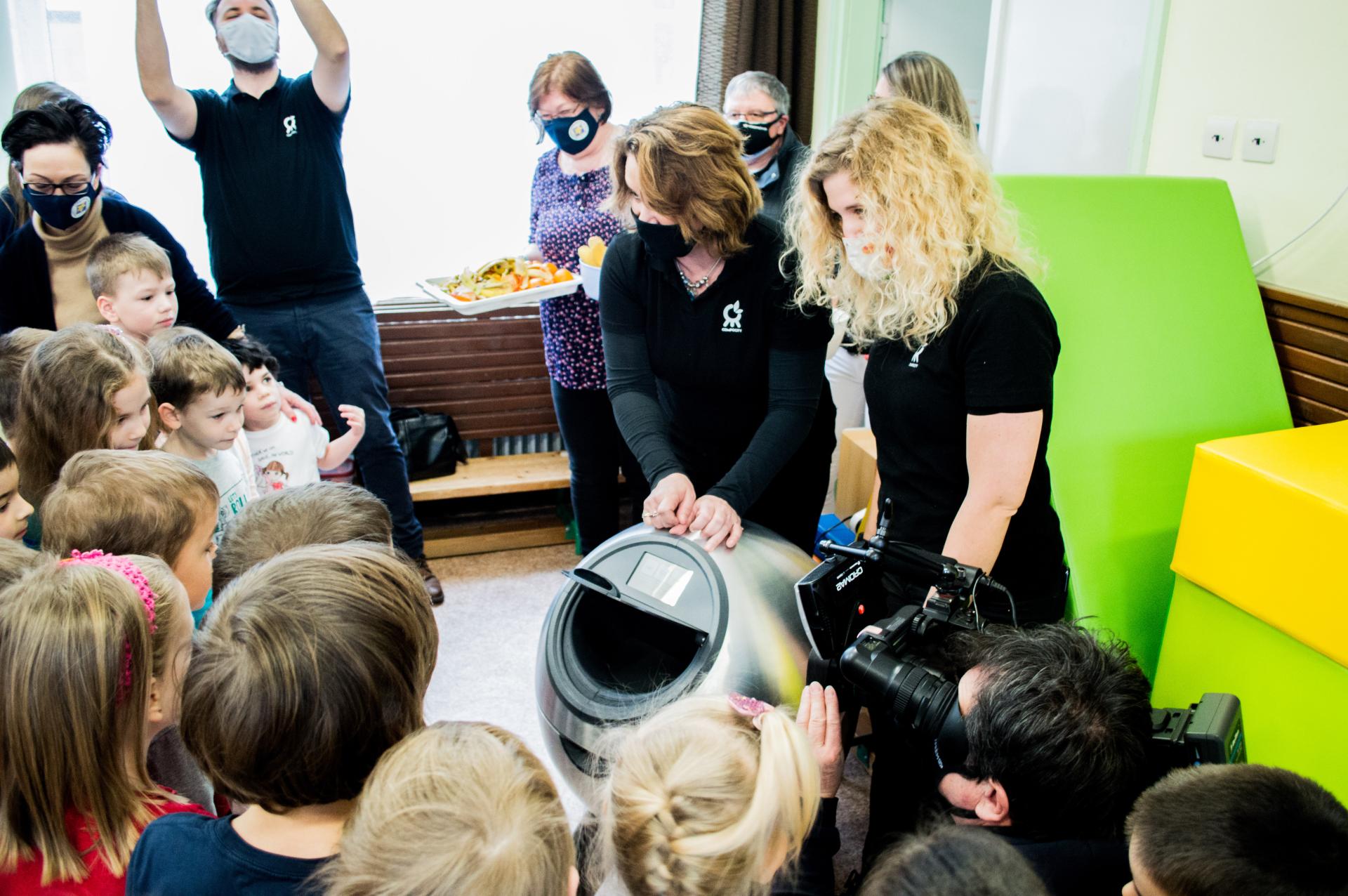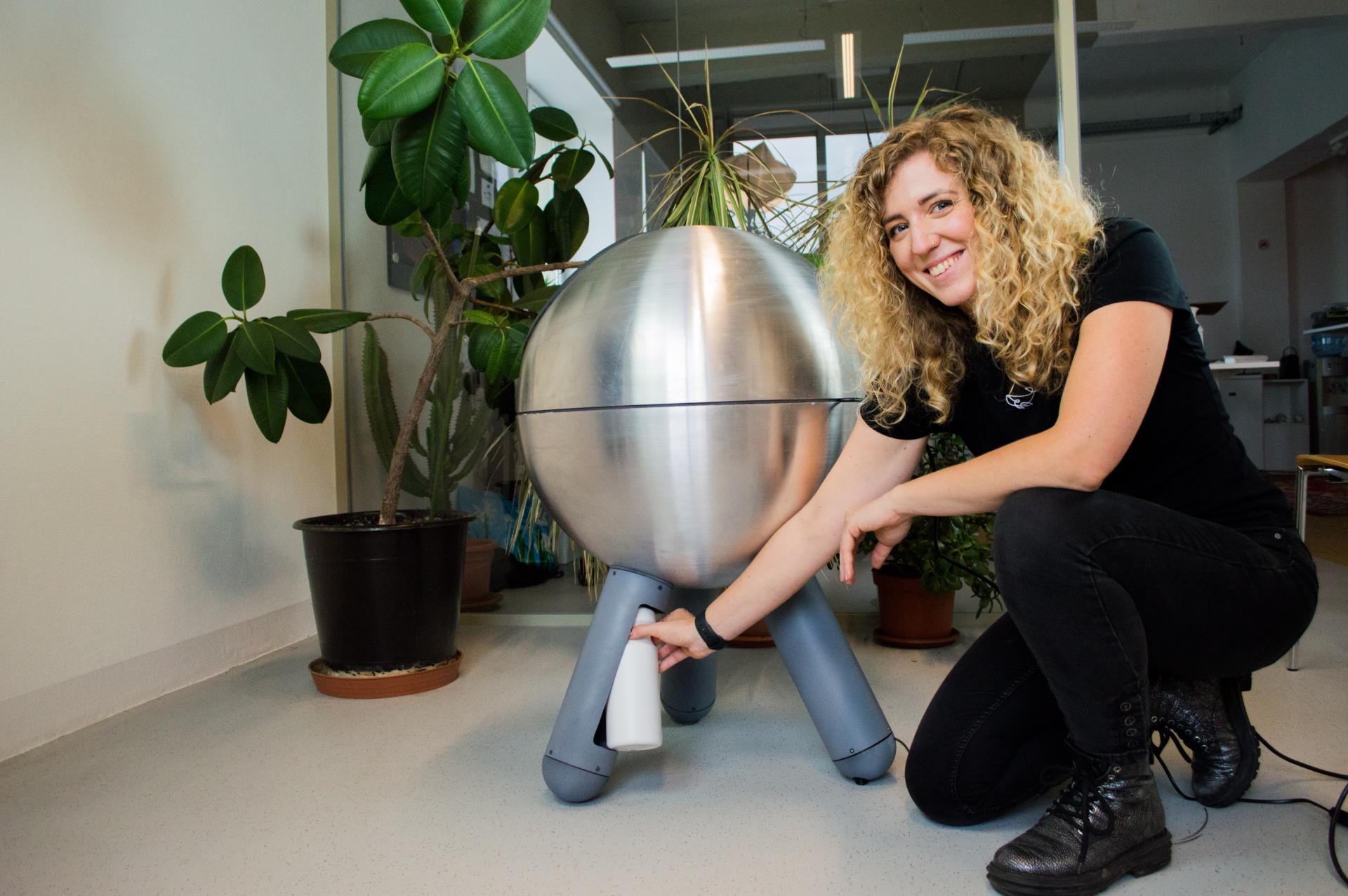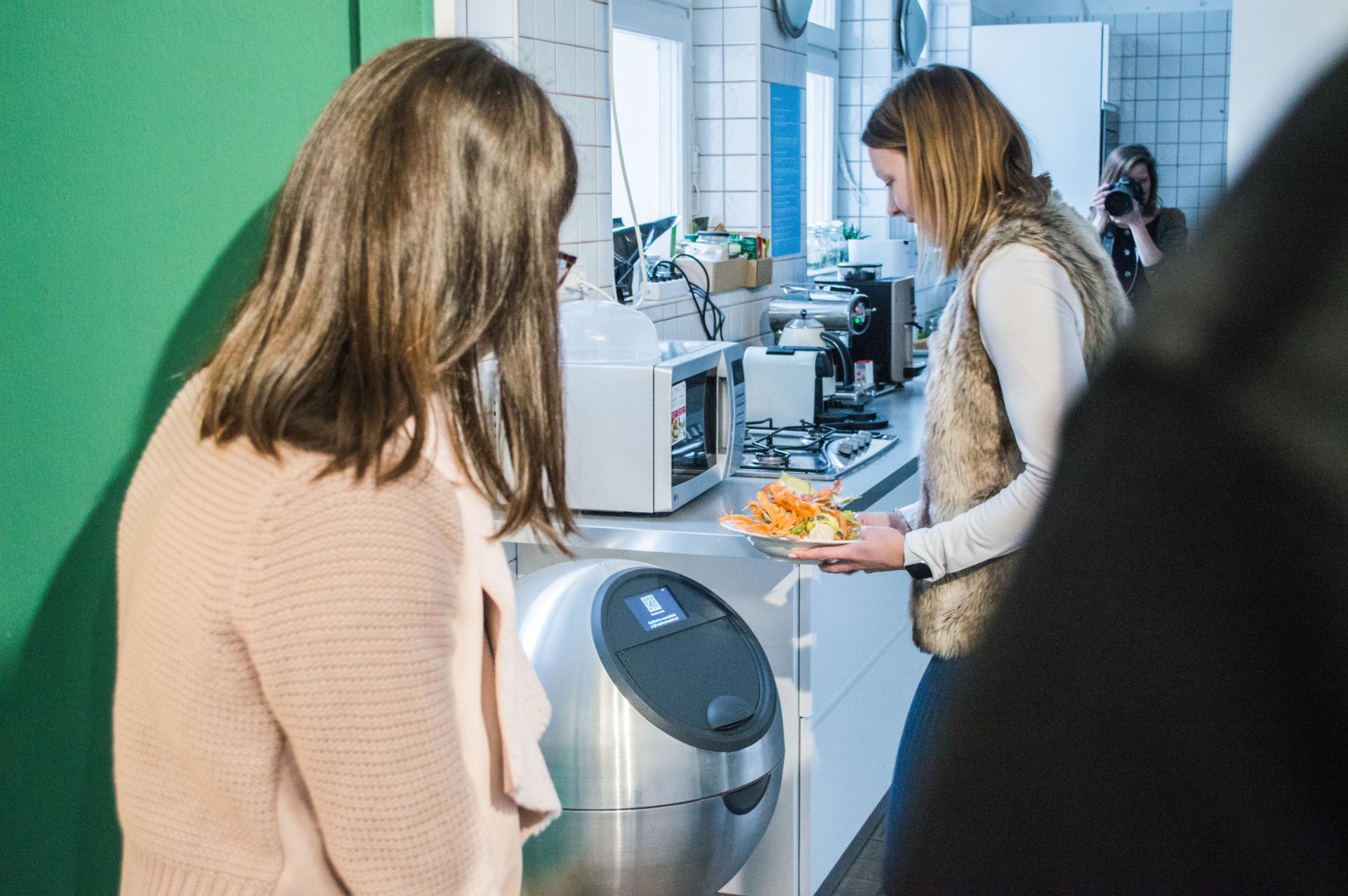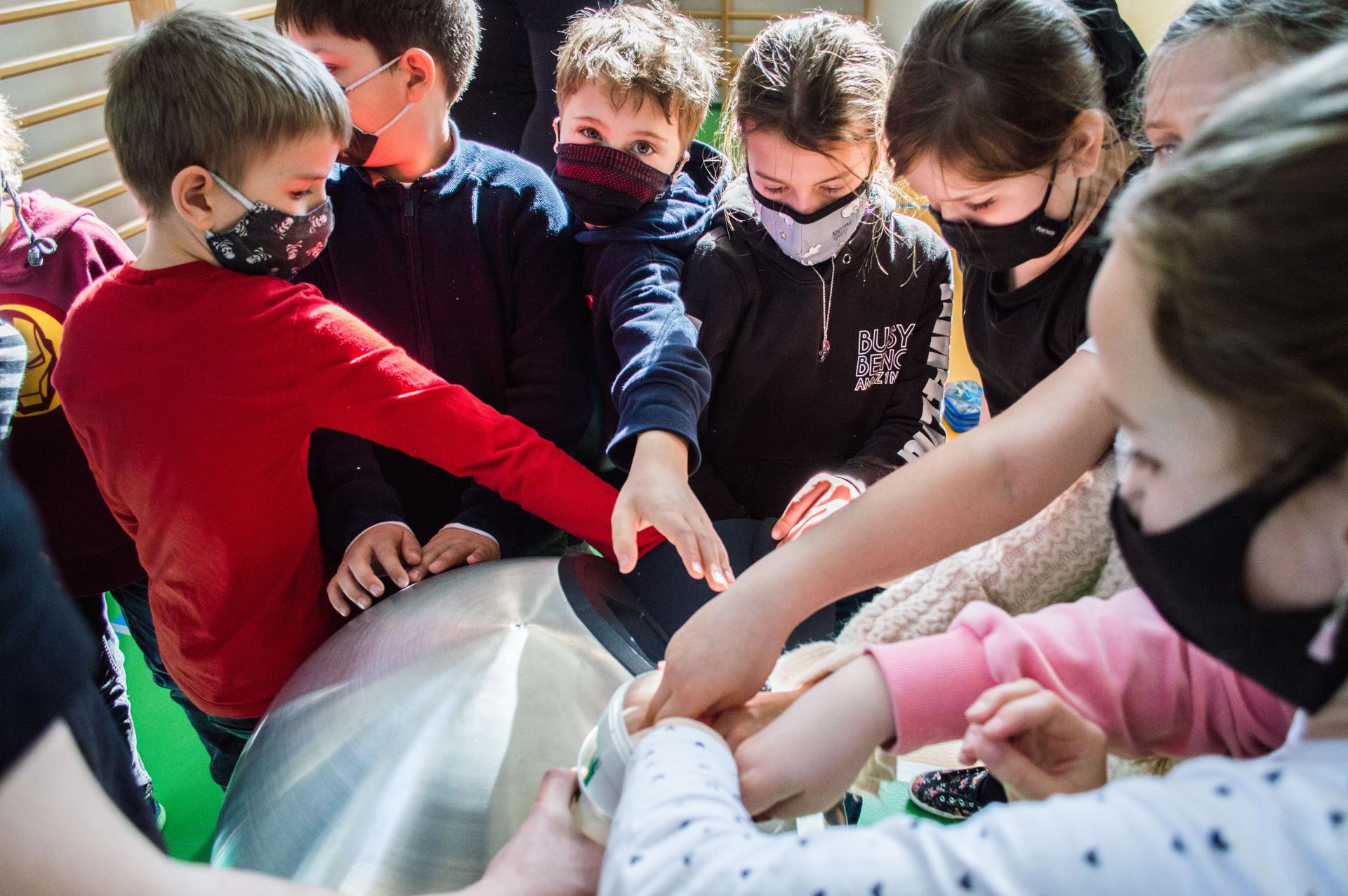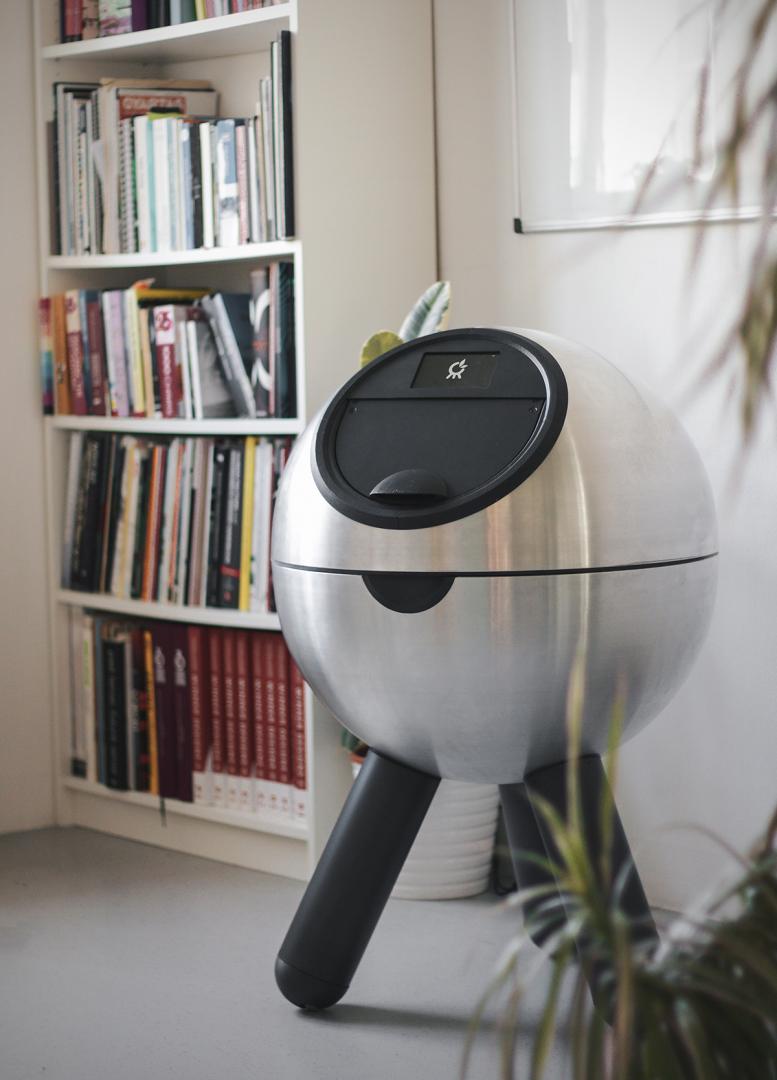Compocity an urban composting Ecosytem
Basic information
Project Title
Full project title
Category
Project Description
Compocity makes transforming food waste easy, fun, and educational. The indoor eco-robot has unique microorganisms that convert food waste into compost in just a few weeks without odors or daily maintenance. Built-in sensors monitor the compost's quality, and users can check their progress and share it with friends. In addition, the system includes an application that turns the entire process into a fun game. So it isn't just about the compost; it's about what compost can do for your community.
Project Region
EU Programme or fund
Description of the project
Summary
The UN claims that, by 2050, 70% of the world's population will live in cities, and all those city dwellers might think that they have a little positive impact on climate change. However, to contribute to sustainability, they need tools that are convenient, educational, and playful.
Compocity is a community-based sustainable service that allows city folks to increase their quality of life by gamified interpretation of sustainability-aware products. This system makes transforming food waste easy, fun, and educational. The easy-to-use indoor composting robot has unique microorganisms that transform food waste into compost in just a few weeks without odors or daily maintenance. The food waste is collected in removable biodegradable capsules, which, when full, are ready to be put back into the soil. These IoT solutions can serve as pick-up points all around the city to produce locally available nutrition. Built-in sensors monitor the compost's quality, and users can check their progress and share it with friends. In addition, the system includes an application that turns the entire process into a fun game. By adding waste to Compocity, users earn points to learn about the environment and connect them to the composting community.
Urban Hero quests are in the app to support a new generation more aware of their environment. This endeavor is part of my bigger effort to develop a new pedagogy method: Sustainability Education Based on Value Propositions. Compocity isn't just about the compost; it's about what compost can do for the whole community.
Our contribution matters not only for our own personal development (through the reduction of our environmental footprints). We can also add value to the common goal, which is a concern for our communities. Our contribution is an investment in the future, now! And it boils down to a comfortable, everyday step—throwing our food waste into the Compocity. We all get a chance to help the Planet to perform better.
Key objectives for sustainability
In cities, plants suffer from low soil quality. So we have difficulties producing quality food, and we are fighting with the amount of food waste. With our solution, you can close the nutrient cycle loop and be a part of the autonomous system easily in your everyday life. Depending on your interest and your possibilities, you can join our system on many different points. The friendly microorganism transforms the food waste into compost at least eight times faster than the original way of composting without any treatment. With the gamified content and the collected data, you will be guided on using it.
Compocity wants to reduce the environmental footprint of city-dwellers implemented in a gamified mission to support the Planet to perform better. We set up key objectives such as the amount of compost capsule that we create together with communities for that mission. We have our first eco-ethically produced product line with ten items. With these unique Ecosystems, we had a community-developed pilot project that involved kindergartens, schools, offices, and corporate partners. We can transform their food waste into compost every few weeks. We have a self-developed admin platform where we can monitor the quality of the compost, and we can give feedback to our users on how they can become urban heroes by using this solution and support the environment. During the previous half-year since we launched our pilot project, we could reach 1000+ people (even under pandemic) and spread the mission of the educational elements of the system.
Moreover, prove to cities how much impact they can create by making a more conscious decision and letting the communities take care of the organic matter and give it back to nature and take care of the nutrient cycle in a playful process. They enjoy how the system awards them by points and badges and how they can have hands-on experience on their impact against climate change. It is only possible in a combination of hardware and software
Key objectives for aesthetics and quality
Now we have 10 eco-ethically produced eco-robots that we validated at the end of last year. We installed them in various urban communities whole around the country and holding educational workshops to spread the mission of Compocity. These eco-robots are made of 3D printed biodegradable plastics covered by an aluminum shell and made in Hungary, locally, by love. We are committed to proving with this manufactured production our core values. Our CEO, Emese Pancsa, a product designer who studied in The Netherlands and was influenced by emotional design and crafts. It helped design the final impersonation of the mission and help citizens divide what trash and waste are and what they can become. The shape itself supports the automated process of composting very well. The globe shape guides the liquids into the legs where the eco-robots store the CompoTEA, the liquid nutrient source. Every consumable is stored in refillable bottles. The flow quickly and easily manageable enough to experience that you are taking care of your robot, working 24/7 for a cleaner and healthier green environment and healthy nutrient-rich food production, and giving everyone a tool to make it a self-sustaining way.
The aesthetics appear not only on the object. Product design for our team covers all the elements of the ecosystem. The application and the admin platform with our unique characters, the whole graphic design could be an individual product that we are continuously iterating for a real urban hero journey, to use the gamification approach for a long-term engagement around sustainability. We have experienced how sustainability could increase our quality of life, and now we are honored to share this mission with our system. The eco-robot welcomes you, informs you, works for you, and can use your points based on the weight of the waste to grow with your environment.
Key objectives for inclusion
Regarding inclusion, we considered a lot of factors during the product development phase. We founded interaction by sounds and in mass production, we are aiming to put braille writing on the interactive surface of the eco-robot. The ergonomics let every community use the Compocity because the size of it fits the kitchen ergonomics, moreover easily movable with built-in hidden wheels. Lots of design solutions already addressing a wide- range of people. Our first users were the family of our CEO, who has a special-need person in the close family. Her stepmother is a paralympic fencer who used all the former prototypes and the latest version as well easily from a wheelchair because of the comfortable ratios of the object. The application and the admin platform now available in two languages and we have a lot of ongoing features to develop further in this supportive direction. The ergonomics are suitable for kids, even for kindergarten age so the whole family can enjoy the process together. The automated process gives a chance for more people to do the composting than ever before, moreover in indoor conditions without any preparation such as buying soil and worms to the system that fill the half to the bucket. The most important aspect of inclusion is not the product development itself, moreover the business model behind it. The eco-ethical production, the manufacturing from local materials, and collaboration with local partners make the limited edition product line pricey. Design for communities works well because the participants encourage and motivates each other. But we would like to spread the mission and get in touch with as many people as it is possible so we are not offering these Ecosystems for sale as a standalone product. We are offering them in a subscription-based model that is more adaptable for a wider audience with an entry fee with a full service.
Results in relation to category
In an average bin, the amount of organic waste approximately 30%. Food decomposing results emitted methane – a 25-28 times more effective greenhouse gas than carbon dioxide. By properly composted food waste, we could avoid methane emissions while providing a valuable resource. It has a massive effect on emission trading as well. According to research, 67% of people would be willing to compost food waste if it could be convenient.
Playful, educational development in children prepares them for a mentality that forms a community of people who care about the environment and deal with it in a new way. According to the University College London publication in 2017, for every USD invested in early play-based education to promote healthy child development, the return for society will be 8 USD. A simple example: If we encourage the children's waste management sensitivity, the next generation will not produce as much garbage in the cities.
The global problem map gives the stability of the concept. One of the main reasons livestock farming has declined is that there is hardly any fodder production in Hungary. With the decline in livestock production, the lack of manure will be a growing issue as far as land is concerned. In this double-faced problem, compost for soil improvement is the solution, since the currently used fertilizer causes a lot of damage in lands in the long term, while we can use the green manure by composting from our bins.
We can reduce our ecological footprint more efficiently and playfully. Compocity is an urban organic waste management system integrating an intelligent bin and an application and an admin platform that informs and educates. It lets you create personal gamified challenges to be involved in the biggest mission of our time with all the urban communities against climate change.
How Citizens benefit
When we announced our community-developed pilot project, we got a lot of interest. It was very beneficial for me because we could reach out to many different communities with different age groups, backgrounds, and interests, so we collected a tremendous amount of feedback to implement in our process toward mass production. Now we have a pre-order list for the following product line, and it's growing exponentially. The communities who participated in the pilot phase spread the mission of our Ecosystem and are recommended by most authentic children. They took it very seriously that they need to take care of the eco-robot, who is the helper of the Planet. The fact that children tell others, for instance, to their parents, that they tested this solution gave us a considerable boost. Many SMEs and corporate partners presented interest in our solution because children pointed out how significant influence is reachable together playfully. The community missions for the young ones turned to competition for the common good at higher age groups. Employees enjoyed at least as much the game as the youngest generation, and Compocity itself makes the possibility to support the nutrient cycle more popular by the unique design elements. The bottom-up approach of our solution can redesign the daily habits regarding waste management and sustainability education at the same time. The ecosystem lets city dwellers, even without a garden or even a balcony, take care of their living environment without any previous knowledge of composting. Whole around the city, they can meet and pass by Compocities, supporting community missions and improve their quality of life.
Innovative character
We can promote the nutrient cycles in cities and the whole circular economy progress by gamifying the composting process. We could make it happen in indoor conditions by automatizing a traditional Japanese methodology that requires at least as much treatment as the standard garden version. The automatization of the process makes it enjoyable to create nutrition for our greeneries and proves that our everyday contribution matters. Every existing method on the market needs daily care, and you need to add consumables to it. For individual household usage, some companies started to produce kitchen machines that support a similar goal by reducing the food-waste of the kitchen. Our goal is not only to reduce the environmental footprint. We want to educate and learn that learning can be fun and enjoyable; if we build a system that allows you to express your voice, we could engage whole communities to join the mission. Thanks to Compocity, we are not only targeting conscious citizens to use a comfy tool in their kitchen. We design a statement product that allows more people to find their inner vane to help nature recover and produce quality food. Regarding this initiative, we consider our know-how not only the mechanism and the internal structure of the eco-robot. Moreover, we are developing sustainable service development with the three pillars to gather hands-on experiences and prove to people how much their decisions matter. With our solution, you can close the nutrient cycle loop and be a part of the self-sustaining system easily in your everyday life. Depending on your interest and your possibilities, you can join our system on many different points.

